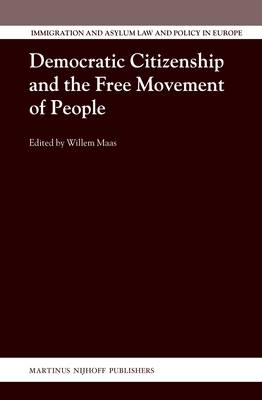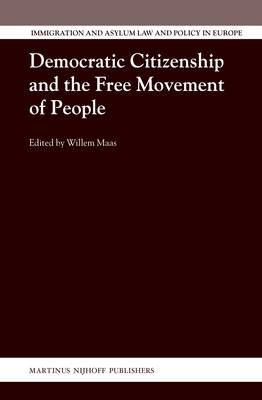
- Afhalen na 1 uur in een winkel met voorraad
- Gratis thuislevering in België vanaf € 30
- Ruim aanbod met 7 miljoen producten
- Afhalen na 1 uur in een winkel met voorraad
- Gratis thuislevering in België vanaf € 30
- Ruim aanbod met 7 miljoen producten
Zoeken
Democratic Citizenship and the Free Movement of People
€ 283,95
+ 567 punten
Omschrijving
Democratic states guarantee free movement within their territory to all citizens, as a core right of citizenship. Similarly, the European Union guarantees EU citizens and members of their families the right to live and the right to work anywhere within EU territory. Such rights reflect the project of equality and undifferentiated individual rights for all who have the status of citizen, but they are not uncontested. Despite citizenship's promise of equality, barriers, incentives, and disincentives to free movement make some citizens more equal than others. This book challenges the normal way of thinking about freedom of movement by identifying the tensions between the formal ideals that governments, laws, and constitutions expound and actual practices, which fall short.
"Individual states and the European Union have either created or permitted the creation of direct and indirect barriers to mobility that undermine the promise of freedom of movement. The volume identifies these barriers, explains why they have arisen, discusses why they are difficult to remove, and explores their consequences." -- Joseph Carens, University of Toronto.
"Individual states and the European Union have either created or permitted the creation of direct and indirect barriers to mobility that undermine the promise of freedom of movement. The volume identifies these barriers, explains why they have arisen, discusses why they are difficult to remove, and explores their consequences." -- Joseph Carens, University of Toronto.
Specificaties
Betrokkenen
- Uitgeverij:
Inhoud
- Aantal bladzijden:
- 228
- Taal:
- Engels
- Reeks:
- Reeksnummer:
- nr. 30
Eigenschappen
- Productcode (EAN):
- 9789004243279
- Verschijningsdatum:
- 9/09/2013
- Uitvoering:
- Hardcover
- Formaat:
- Ongenaaid / garenloos gebonden
- Afmetingen:
- 163 mm x 241 mm
- Gewicht:
- 566 g

Alleen bij Standaard Boekhandel
+ 567 punten op je klantenkaart van Standaard Boekhandel
Beoordelingen
We publiceren alleen reviews die voldoen aan de voorwaarden voor reviews. Bekijk onze voorwaarden voor reviews.







